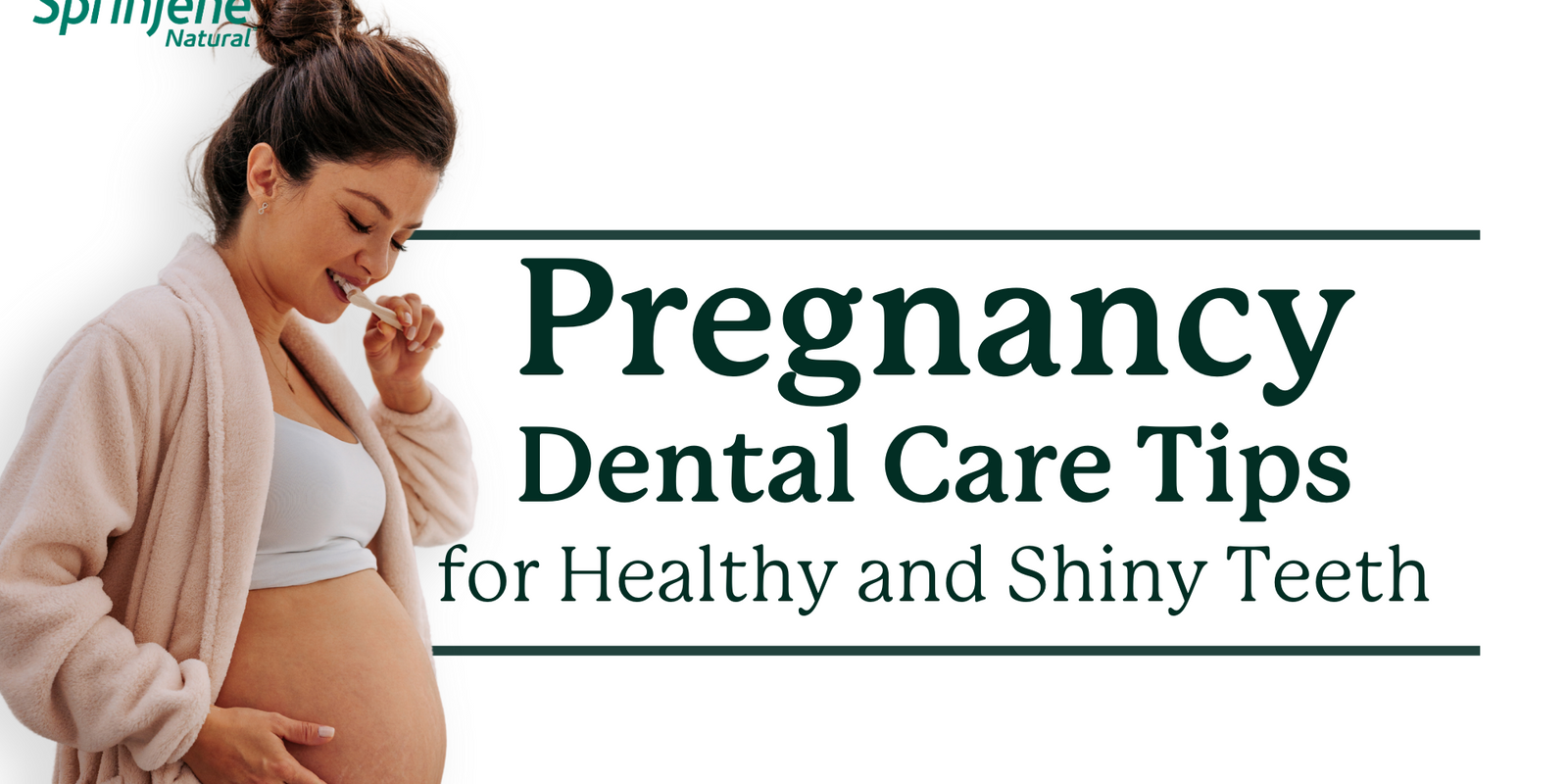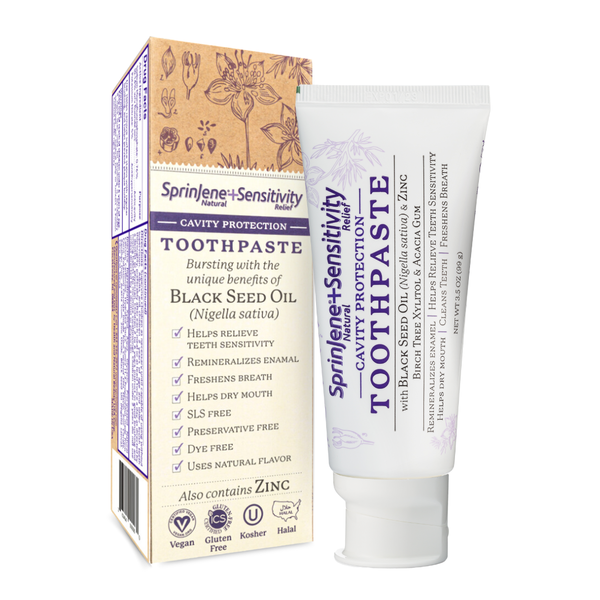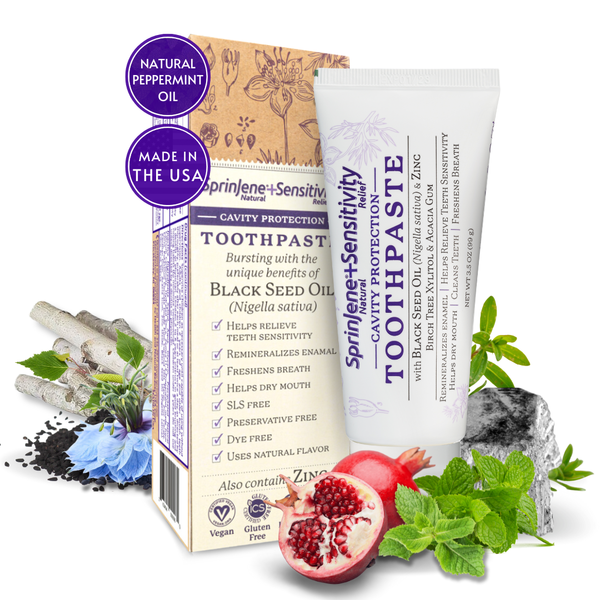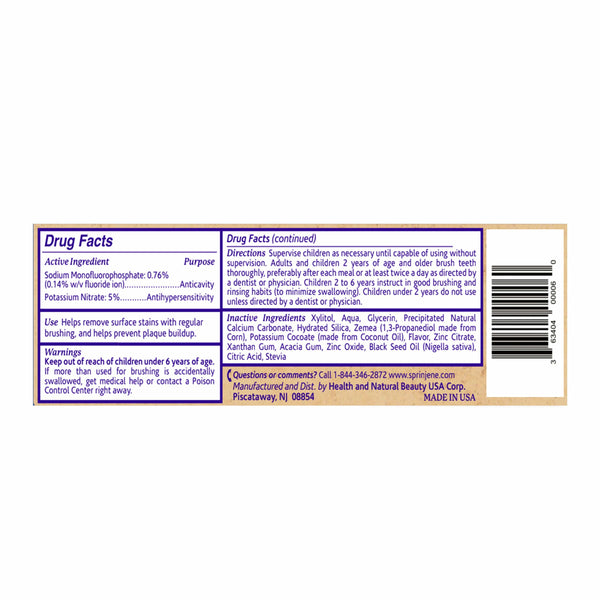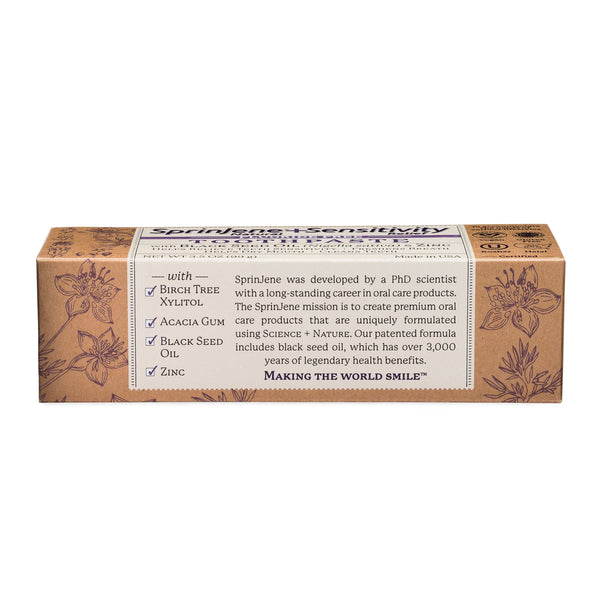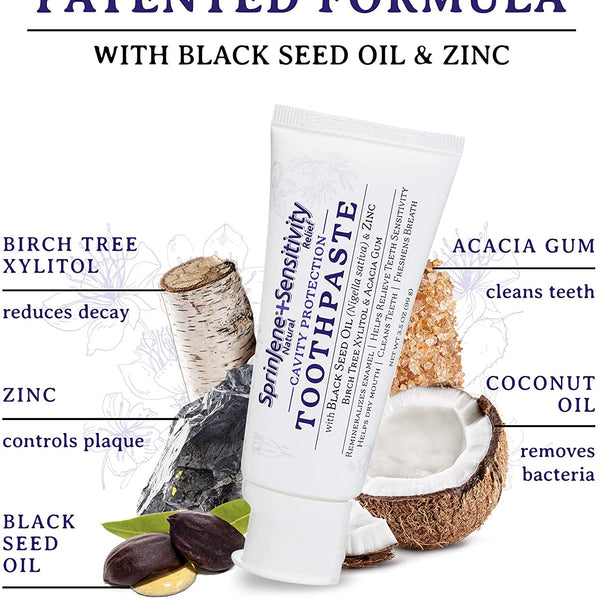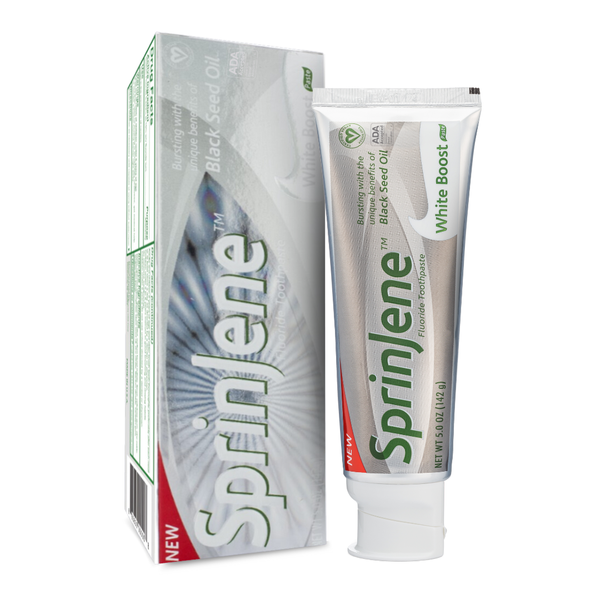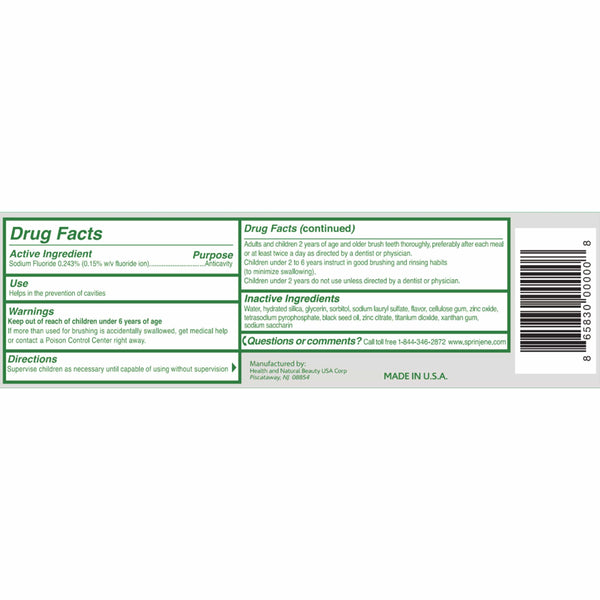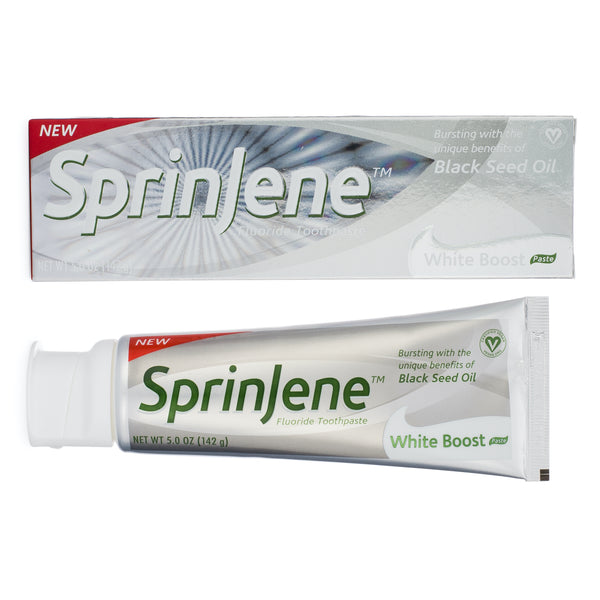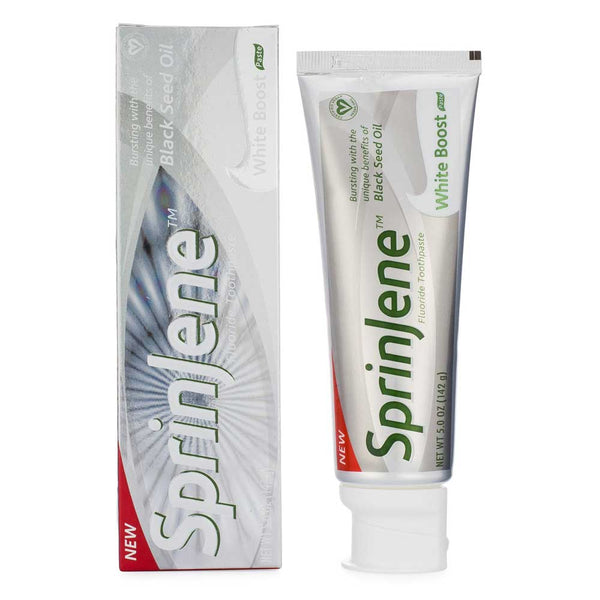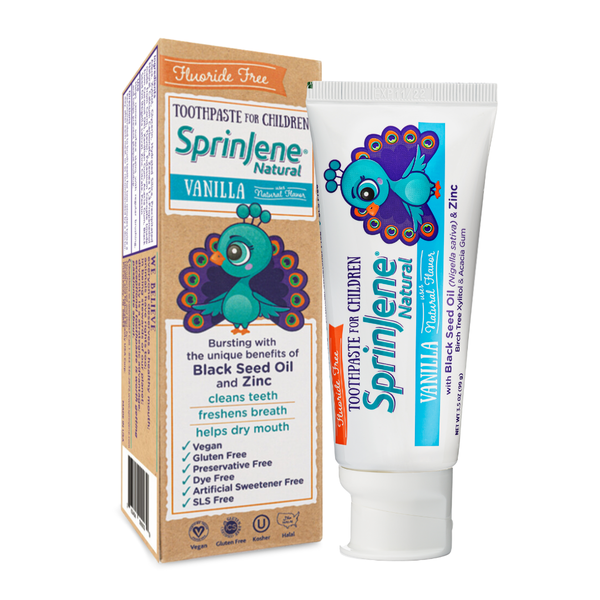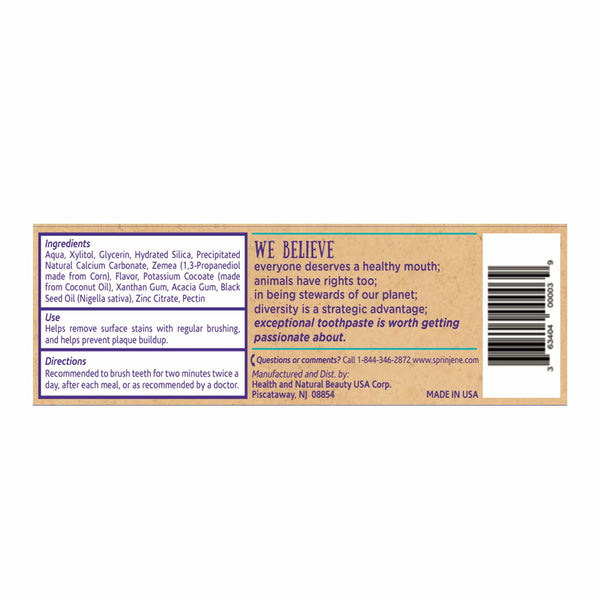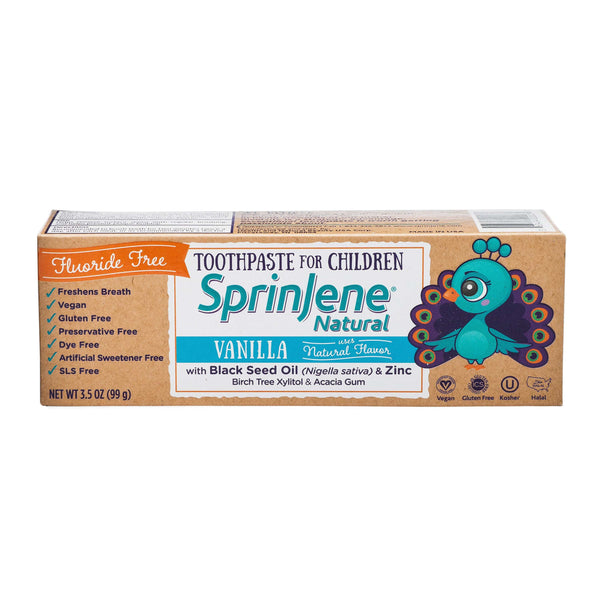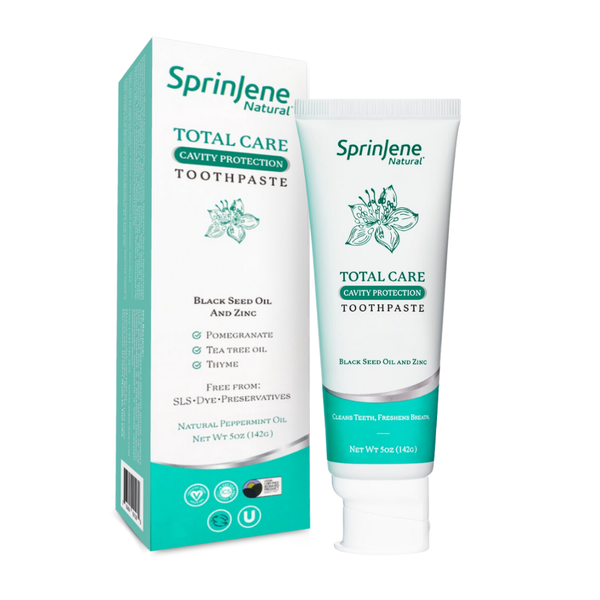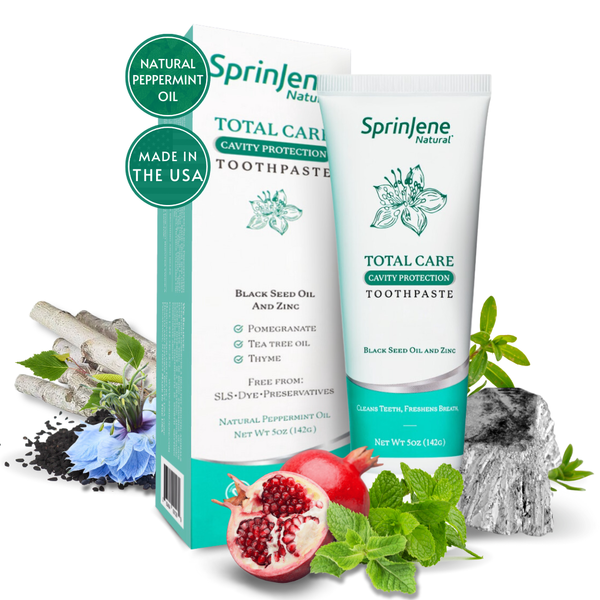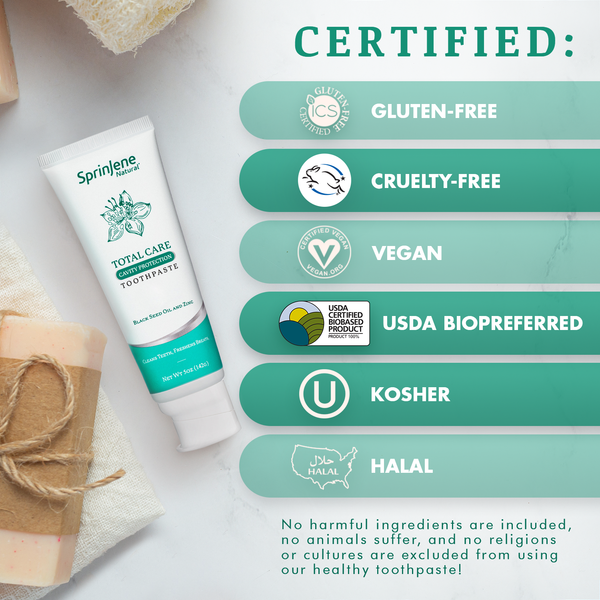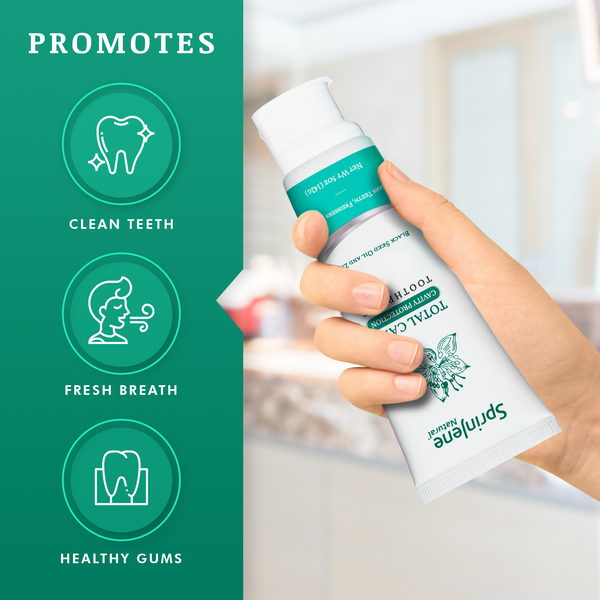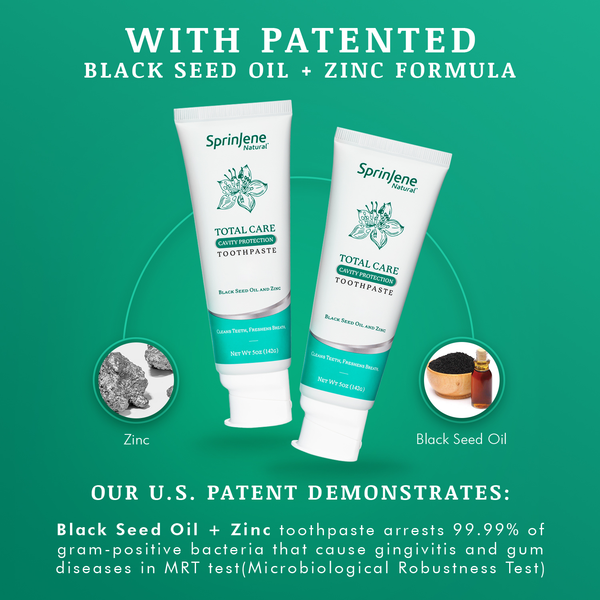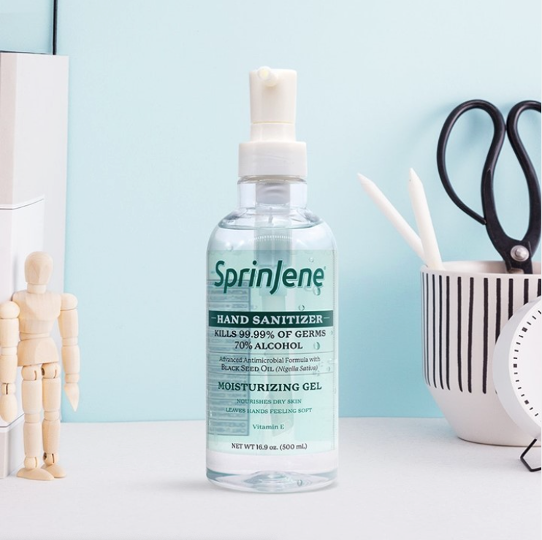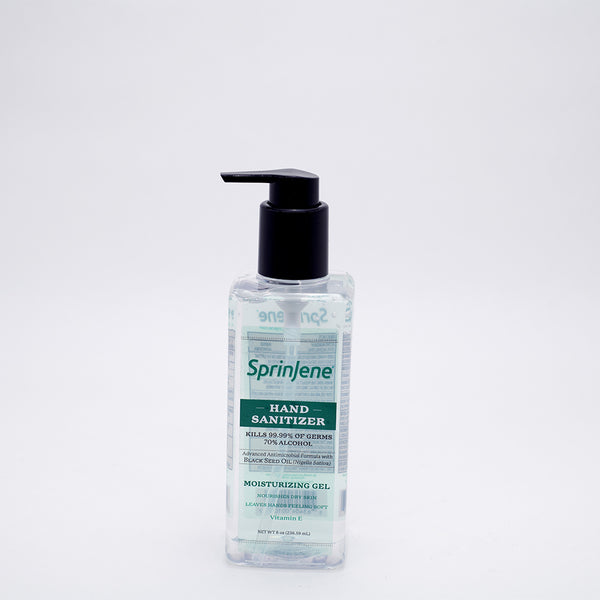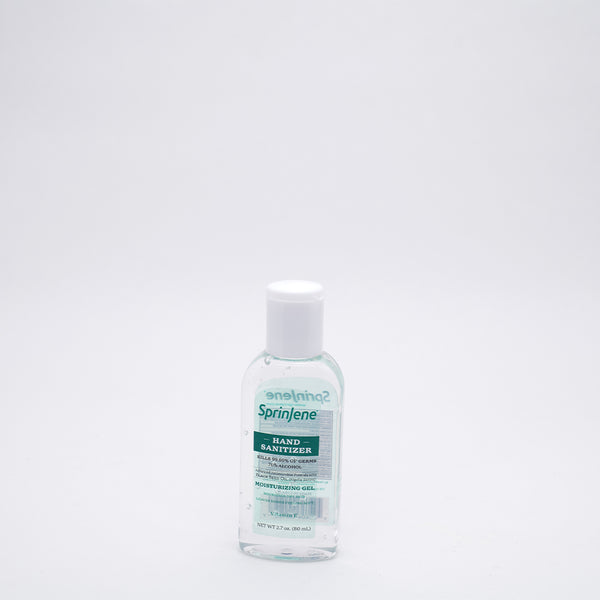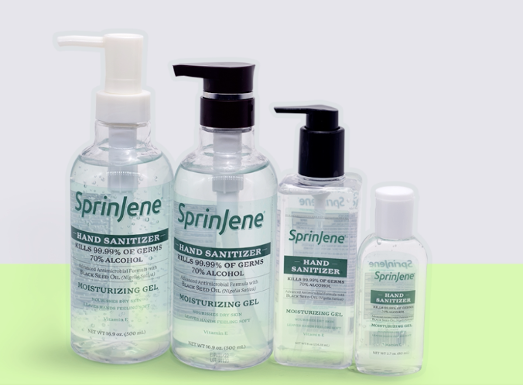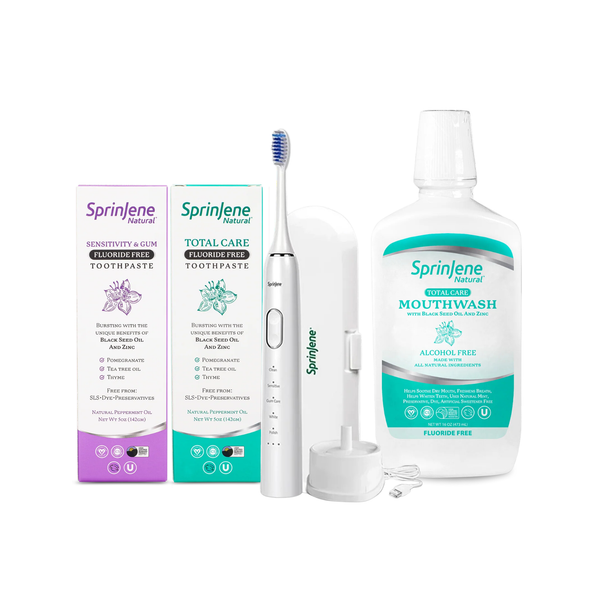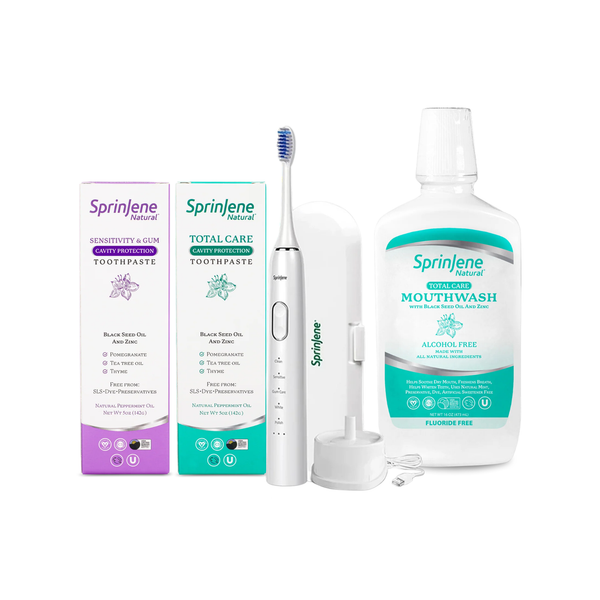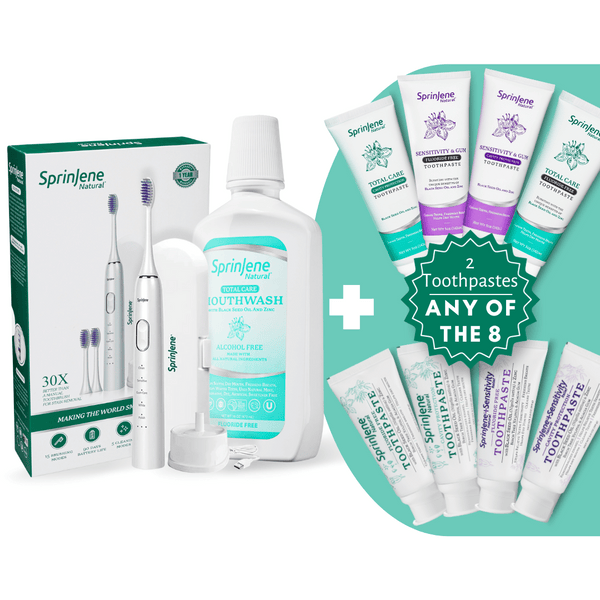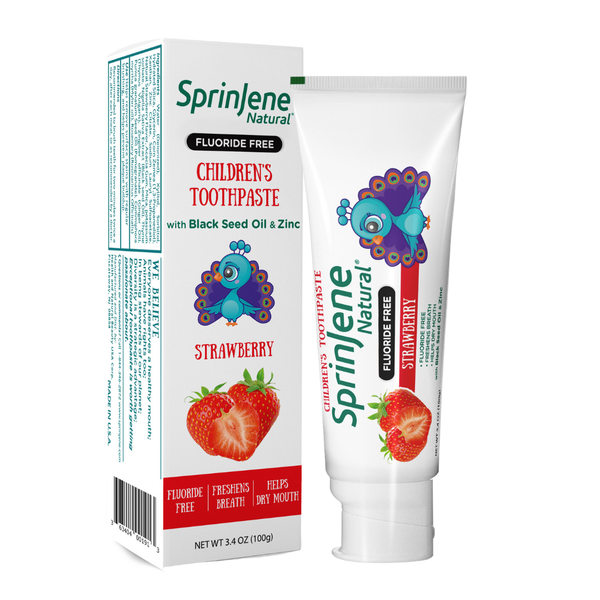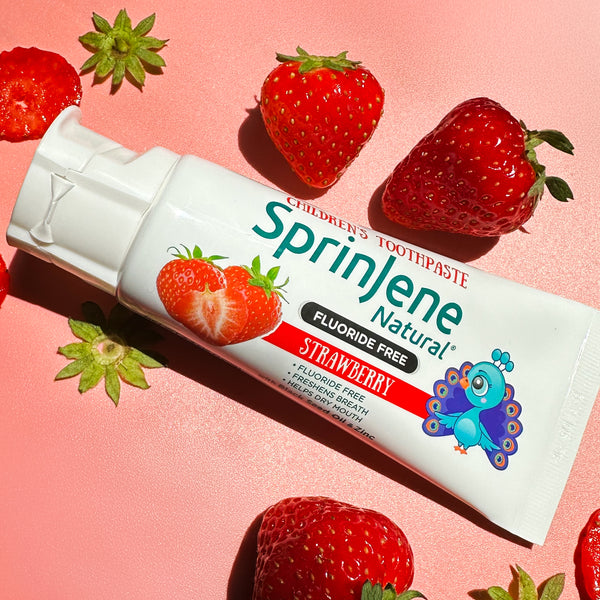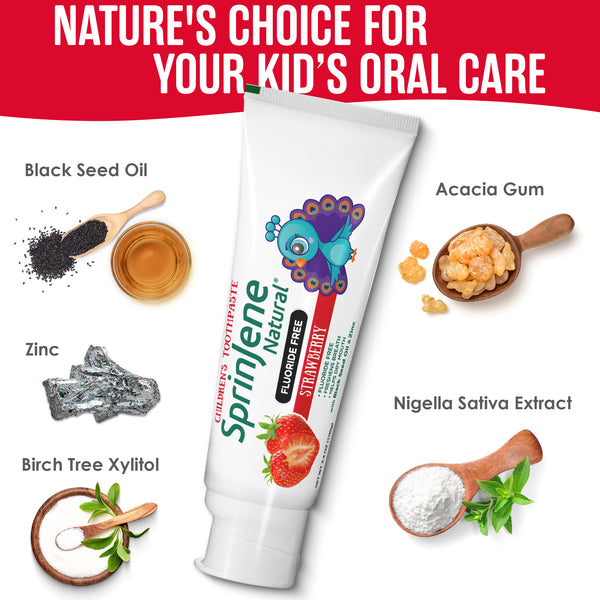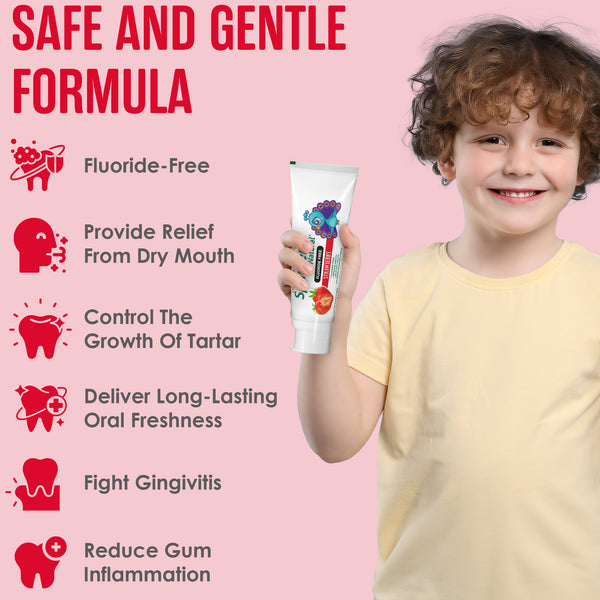Pregnancy is a special time in a woman's life, and it's important to prioritize oral health during this period. When women are pregnant, they can have more issues with their gums and teeth because their hormones change, and there's more blood in their gums. To keep your teeth healthy and shiny during pregnancy, here are some essential dental care tips to follow:
1. Maintain a Consistent Oral Care Routine
Continue brushing your teeth at least twice a day with fluoride toothpaste. Use a soft-bristled toothbrush to avoid irritating your gums. Don't forget to floss daily to remove plaque and food particles from between your teeth. Maintaining a consistent oral care routine helps prevent cavities and gum disease.
Shop your SprinJene Natural oral care products now!
2. Visit Your Dentist Regularly
Schedule a dental check-up before or early in your pregnancy. Inform your dentist about your pregnancy so they can provide appropriate care and guidance. Regular dental visits during pregnancy are essential to monitor oral health, address concerns, and receive professional cleanings.
3. Discuss Pregnancy Dental Care with Your Dentist
Always inform your dentist about your pregnancy, including how far along you are. This helps your dentist create a plan to keep you and your baby safe during dental procedures you might need.
4. Address Dental Issues Promptly
If you experience any dental problems during pregnancy, such as toothaches, gum swelling, or bleeding, contact your dentist immediately. Prompt treatment can help alleviate discomfort and prevent the progression of dental issues.
5. Be Mindful of Morning Sickness
Morning sickness is common during pregnancy[1] and can expose your teeth to stomach acid, which can erode tooth enamel. To minimize the effects of morning sickness on your teeth:
- Rinse your mouth with water or a fluoride mouthwash after vomiting to neutralize the acid.
- Wait at least 30 minutes before brushing your teeth to avoid further enamel erosion.
6. Eat a Healthy and Balanced Diet
Maintain a nutritious diet during pregnancy to support your overall health and dental well-being. Include foods rich in calcium, such as dairy products, leafy greens, and fortified cereals, to promote strong teeth and bones. Limit sugary snacks and beverages to reduce the risk of tooth decay.
7. Stay Hydrated
Drinking plenty of water is crucial for your overall health and oral hygiene. It helps rinse away food particles, neutralize acids, and maintain saliva production, which protects your teeth against decay. Aim to drink water throughout the day to stay hydrated.
8. Manage Pregnancy Gingivitis
Hormonal changes during pregnancy can lead to an increased risk of gum disease[2] and gingivitis. Discuss with your dentist how to manage and prevent gingivitis.
9. Practice Stress Management
Stress can impact your oral health. During pregnancy, take time to relax, practice relaxation techniques, and engage in activities that help manage stress. Stress reduction contributes to better overall health, including your dental well-being.
10. Stay Informed
Keep yourself informed about pregnancy dental care. Stay updated on recommended practices, new guidelines, and any specific dental procedures or medication precautions.
Pregnancy And Oral Health
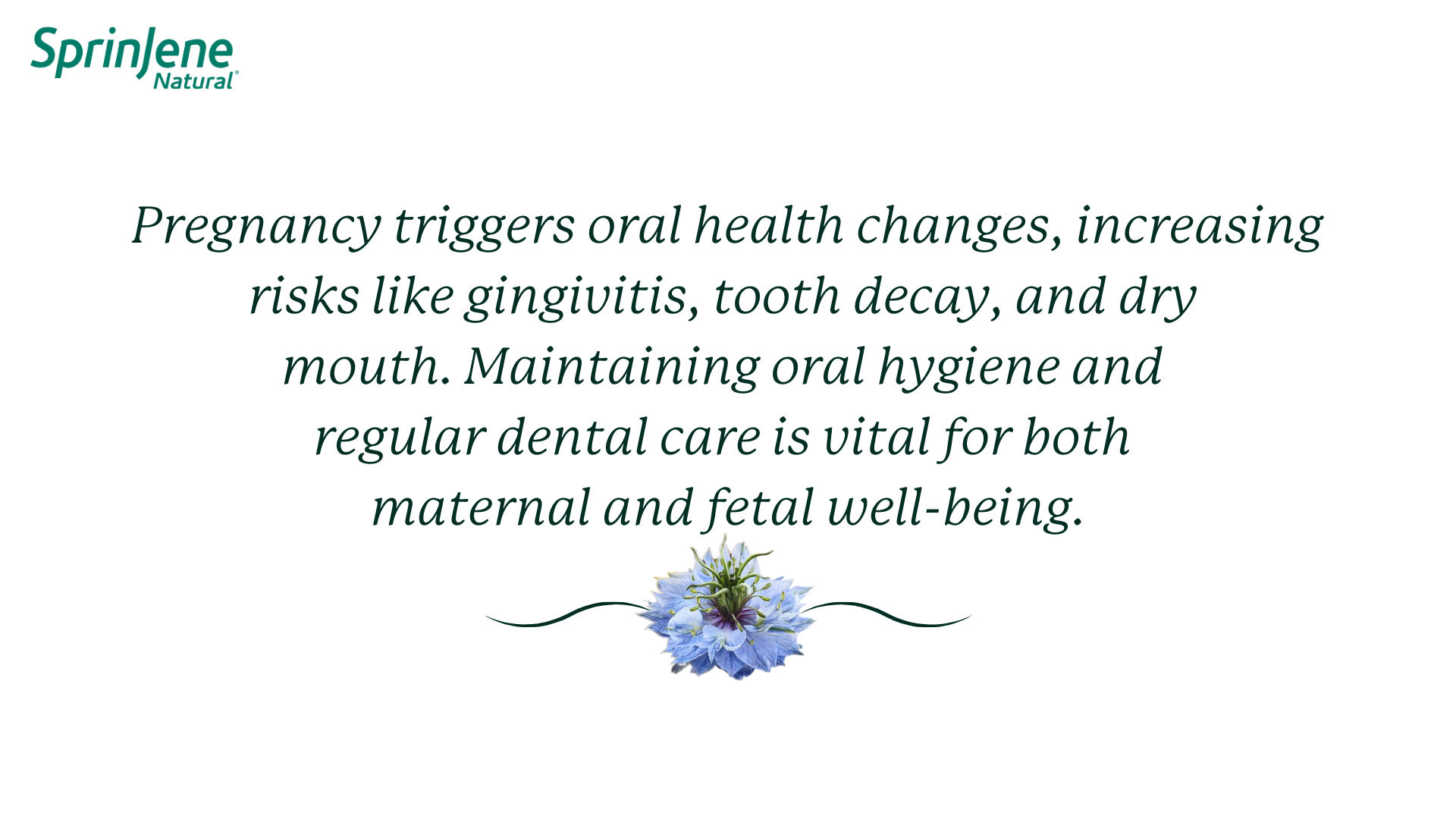
1. Pregnancy Gingivitis
During pregnancy, elevated progesterone levels can induce gingivitis[4], which manifests as red, swollen, and tender gums. Caring for your teeth through twice-daily brushing, daily flossing, and regular dental cleanings can effectively manage and prevent pregnancy gingivitis.
2. Pregnancy Tumors
Some pregnant women may develop pregnancy tumors or pyogenic granulomas on the gums. These are non-cancerous growths that appear as red, raw, and bleeding nodules. While they are harmless, they can be uncomfortable. Your dentist may recommend gentle removal if they interfere with oral hygiene or cause discomfort.
4. Tooth Decay
Pregnancy cravings and changes in eating habits can increase the risk of tooth decay. It is important to maintain a balanced diet and limit sugary snacks and drinks. Brushing with fluoride toothpaste and regular dental check-ups can help prevent tooth decay.
5. Enamel Erosion
Morning sickness and increased acidity in the mouth can lead to enamel erosion. If you throw up, it's a good idea to rinse your mouth with water or fluoride mouthwash. Wait for at least 30 minutes before brushing your teeth to avoid harming the softened enamel.
6. Pregnancy Epulis
Pregnancy epulis is a localized swelling of the gums, usually caused by irritation or injury. It may occur because of poor oral hygiene or as a response to dental plaque. Maintaining good oral hygiene and regular dental visits are important for prevention and treatment.
7. Dry Mouth
Some pregnant women may experience dry mouth because of hormonal changes or medications. Saliva plays a crucial role in neutralizing acids and guarding against tooth decay. Therefore, it's essential to stay hydrated, chew sugar-free gum, and, if necessary, contemplate using saliva substitutes.
8. Tooth Mobility
Hormonal changes can affect the supporting tissues around the teeth, leading to tooth mobility or loosening. Informing your dentist about any alterations in tooth mobility is crucial to guarantee suitable treatment and prevent potential complications.
During pregnancy, it is important to inform your dentist about your pregnancy and any medications or supplements you are taking. Routine dental check-ups, proper oral hygiene practices, and a balanced diet can help prevent and manage these dental problems. Remember, looking after your teeth is not only good for you but also vital for your baby's health as they grow. Shop your favorite SprinJene Natural products here!
Toothpaste Aversion In Pregnancy
Toothpaste aversion, or experiencing a dislike or sensitivity to the taste or smell of toothpaste, is not uncommon during pregnancy. Many pregnant women may find certain toothpaste flavors or textures unpleasant because of the changes in their senses and hormonal fluctuations. However, it's important to maintain good oral hygiene even if you're experiencing toothpaste aversion. Here are some tips to help you manage toothpaste aversion during pregnancy:
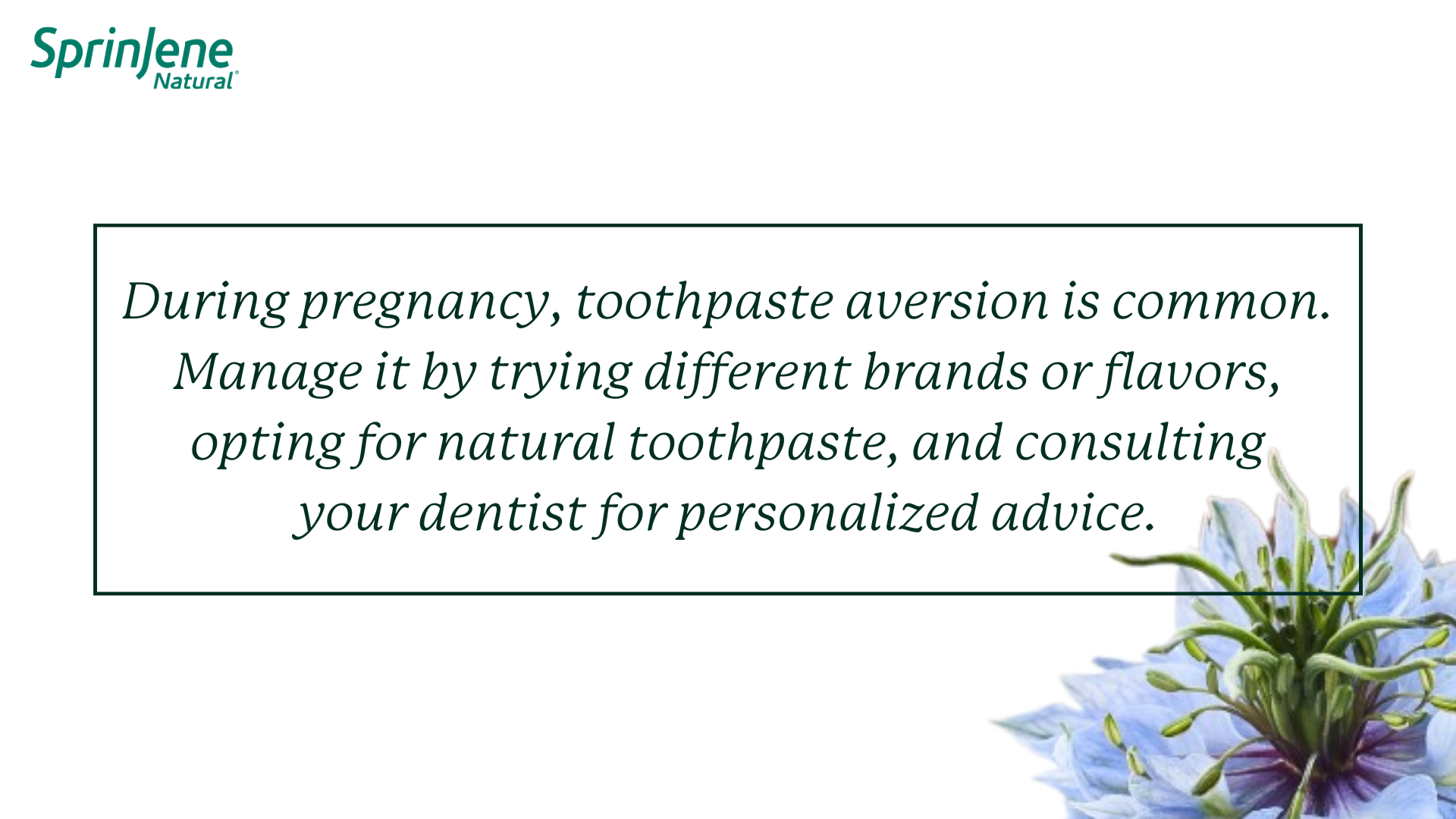
1. Try Different Brands and Flavors
Experiment with different brands or flavors of toothpaste to find one that is more tolerable for you. Certain toothpaste options offer milder flavors or cater specifically to individuals with sensitivity.
2. Opt for Natural Toothpaste
Consider using natural toothpaste that contains milder ingredients and natural flavors. These toothpastes often have a less intense taste and may be more appealing during pregnancy. Click here to bundle your favorite SprinJene Natural products and save up to 15% off.
3. Use Alternative Products
If you still don't like toothpaste, you can consider trying other ways to keep your mouth clean, like using baking soda. It can do a good job of cleaning and freshening your mouth. However, it's important to consult with your dentist or healthcare provider before making any significant changes to your oral care routine.
4. Focus on Proper Technique
Even if you have an aversion to toothpaste, maintaining proper brushing technique is crucial. Be sure to brush your teeth well for two minutes with a gentle toothbrush and water, even if you're not using toothpaste.
5. Rinse with Mouthwash
Consider using an alcohol-free mouthwash after brushing to help freshen your breath and provide some oral hygiene benefits. Look for a mild, pregnancy-safe mouthwash option. Shop SprinJene Natural Black Seed Oil Mouthwash, Gum and Dry Mouth Relief!
6. Increase Water Intake
Drinking water before brushing can help neutralize any taste in your mouth and make the brushing experience more comfortable.
7. Practice Good Oral Hygiene Habits
In addition to brushing, it's important to continue flossing daily and maintain regular dental check-ups during pregnancy. Your dentist can provide guidance on managing toothpaste aversion and offer other suggestions tailored to your specific needs.
Remember, maintaining good oral hygiene during pregnancy is essential for your overall health and the health of your baby. If you don't like toothpaste or have concerns, it's a good plan to speak with your dentist or healthcare provider for advice that's just for you.
8. Natural Toothpaste In Pregnancy
Choosing natural toothpaste when you're pregnant can be a great choice. It promotes good dental hygiene and lowers exposure to harmful substances.
One example of a safe and natural toothpaste to use is SprinJene Natural®. It is 100 percent organic and non-toxic and is the ideal toothpaste to use for the whole family. Here are some benefits and considerations of using natural toothpaste during pregnancy:
Benefits of Natural Toothpaste
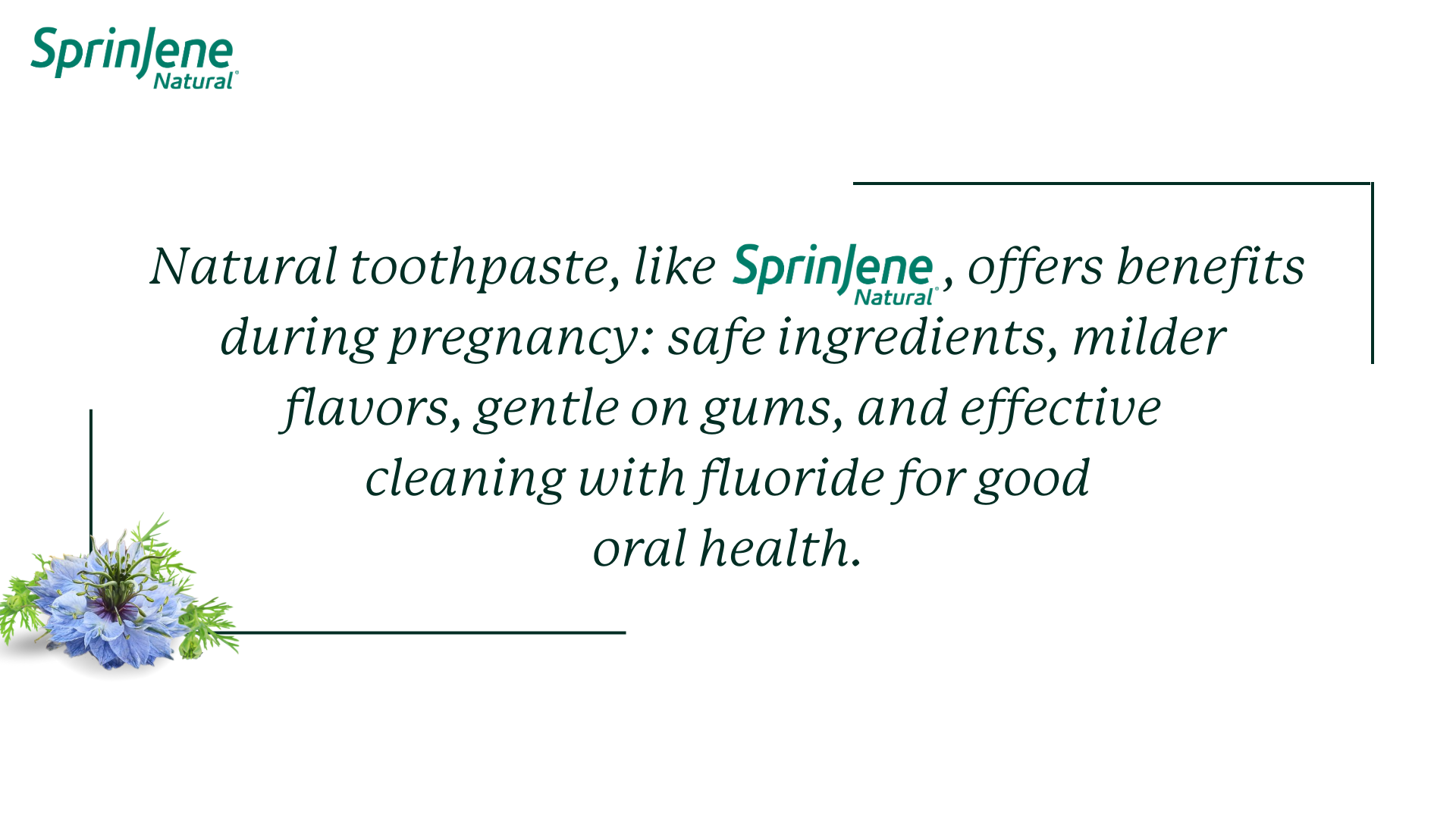
-
Safe Ingredients
Natural toothpaste usually has stuff from nature and doesn't have fake flavors, colors, preservatives, or strong stuff like sodium lauryl sulfate (SLS). This can provide peace of mind, knowing that you are using a product with safer ingredients during pregnancy.
-
Mild Flavors
Natural toothpaste, like SprinJene Natural® Toothpaste, usually has gentler flavors, which can help if you're sensitive or don't like strong tastes when you're pregnant. Options like mint, cinnamon, or citrus flavors can be more appealing. Learn more about How to Prevent Tooth Sensitivity.
-
Gentle on Gums
Pregnancy hormones can make your gums more sensitive and prone to bleeding. Natural toothpaste typically formulates itself to be gentle on the gums, thereby reducing the risk of irritation or discomfort during brushing.
-
Effective Cleaning
Natural toothpaste can still effectively clean your teeth and help remove plaque, contributing to good oral health. Search for natural toothpaste with fluoride because it helps prevent tooth decay and strengthens tooth enamel by replenishing minerals.
Ultimately, the choice of toothpaste during pregnancy is a personal one. If you decide to use natural toothpaste, ensure it suits your dental needs and personal preferences, and be mindful of its ingredients and any recommendations from your dentist. Taking care of your teeth is crucial for both you and your baby. Keep up with regular brushing, flossing, and dental check-ups during your pregnancy.
The Bottom Line
By following these pregnancy dental care tips, you can maintain healthy and shiny teeth throughout your pregnancy. Focusing on your oral health during this time is beneficial for you and the health of your growing baby. Remember, a healthy smile contributes to your overall well-being during this special period.
Frequently Asked Questions
-
Can I use regular toothpaste during pregnancy?
- While you can use regular toothpaste during pregnancy, some women may develop a sensitivity or aversion to it. In such cases, natural toothpaste options can be a good alternative.
-
Is it safe to visit the dentist during pregnancy?
- Yes, it is safe to visit the dentist during pregnancy. In fact, regular dental check-ups are important to monitor and maintain your oral health during this time.
-
How can I manage morning sickness-related dental issues?
-To protect your teeth from morning sickness, rinse your mouth with water or fluoride mouthwash after throwing up, and wait for 30 minutes before brushing.
-
Should I be concerned about tooth mobility during pregnancy?
- Hormonal changes can impact tooth stability, so be sure to tell your dentist about any changes to get the right treatment.
-
What should I do if I experience toothpaste aversion during pregnancy?
-If you don't like toothpaste, you have options. You can try different brands or flavors, use natural toothpaste, or talk to your dentist for advice on taking care of your teeth.
Reference:
[1] Dean, E. (2016). Morning Sickness. National Library of Medicine. DOI: 10.7748/ns.30.50.15.s16
[2] Laine, M. (2002). Effect of pregnancy on periodontal and dental health. National Library of Medicine. DOI: 10.1080/00016350260248210
[3] Silk H., Douglass A., Douglass H., & Silk L. (2008). Oral health during pregnancy. National Library of Medicine. PMID: 18481562.
[4] Zachariasen, R. (1993). The effect of elevated ovarian hormones on periodontal health: oral contraceptives and pregnancy. National Library of Medicine. DOI: 10.1300/j013v20n02_02

